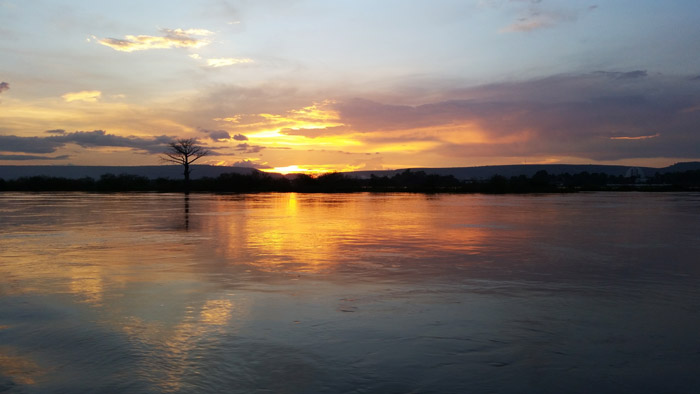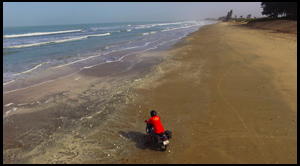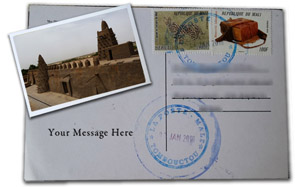Last Thursday was Mali’s independence day. Happy birthday, Mali.
A little perspective: when I write about Mali, I do so as an expat that has been living on and off in the country for 6 years. My wife is Malian, and her opinion often informs mine. I also run a business in the service industry that employs a couple dozen people, which means that I am in regular contact with different government agencies and other business owners. This, too, informs my opinion.
We are three years into the presidency of Ibrahim Boubacar Keita (IBK). Here is what IBK or an IBK supporter (there are not as many of them around these days) says about the current state of affairs in Mali: the country was in chaos in 2013. Since being in office, the economy has grown, the prices of a number of basic goods have not risen significantly, civil servants are receiving more pay, and a peace accord has been signed between the government and armed groups in the north of Mali. There is a new bridge in Koulikoro, more people will soon have access to potable water in the capital, and work has restarted on the Niono to Timbuktu road. Things could be better, but they are a lot better than they were!!
Here’s what I (and a good number of Malians) would say: the north is a mess. There are more armed groups now than there were before the peace accord was signed. While the Malian military has not had direct conflict with the armed groups that signed the accord, the pro-government militia (GATIA) is actively fighting them. The Malian military has also been regularly attacked by jihadist groups. Banditry and general crime in the north continue unabated (just a couple days ago an ambulance was stolen in Léré). In many localities the state is present in name only.
While the IMF may applaud Mali’s macro-economic numbers, there has been little benefit on the ground in terms of jobs or infrastructure. The creation of 200,000 jobs was a staple of IBK’s campaign in 2013. Where are they? The public sector isn’t growing. Last I checked, it shrunk because the government found heaps of salaries going to nonexistent people (a good thing that they found them). Of course, too many civil servant jobs can be its own burden. What about elsewhere in the formal sector? Outside of Ozone Mali (a Moroccan garbage collection agency that has been plagued with labor issues), what are some other significant employment initiatives? (I’m serious, I would be relieved to know about others.)
What about the informal economy? The government has recently flexed its muscles by dismantling free standing informal businesses, such as barber shops, orange money transfer kiosks, small maquis and restaurants, boutiques and many others. Neighborhood by neighborhood, the government has razed these businesses, supposedly to liberate the main arteries of Bamako. However, many businesses on side streets have also been demolished, and it’s clear the picture is more complicated than freeing up the roads and open sewers.
"Progress" in Bamako. Demolishing businesses that've been around 4 years, together with the jobs they created. #Mali pic.twitter.com/KgIZvw16zY
— Niek (@Niek_Partout) September 10, 2016
The businesses (or what’s left of them) in the photos above were on an unpaved side street. They were mostly small bars and restaurants. Maiga’s late night sandwich shop was, to me, a Bamako staple. The maquis at the end of the road, Coup de Frein, was a once-a-week stop for me. Excellent brochettes and kedjenou and cold beer. Marie, the server who had been working there for 10 years, is now trying to get work at our place. How many people lost their businesses or their jobs in this campaign?
Many of these businesses may not have been legal. They may have paid a local tax to the mayor, but they might not have been formally incorporated. Many would not have paid tax beyond the small sums imposed by the municipal government. So yes, the state was not getting revenue from most of these businesses, but these businesses provided a means for money to circulate. Mali has many laws on the books that aren’t enforced because much of the population is vulnerable (for instance, non bio-degradable plastic bags are officially illegal), and the enforcement of certain laws would raise the cost of living. Now the state is not getting revenue from these businesses, and heaps of people aren’t making any money themselves.
In one fell swoop, I lost my barber shop, my dibisogo spot (slow-cooked, smoked sheep meat), my maquis, my late night sandwich shop and my boutique (corner store). Maybe these businesses will recover. Maybe they will end up in storefronts with a license to operate. If they do, it won’t be because of anything the government did. There were no viable alternatives in place to absorb the demolition of these businesses citywide. Some business owners said they were told to go to Halles to Bamako, a giant shopping complex that doesn’t make sense for many businesses.
It’s clear that there are many actors to blame here, not just IBK and Ami Kane, his appointed governor of the district of Bamako. Many of the mayors (who were collecting small small tax from the businesses) may have misled business owners in the lead up to the demolition. It seems that Ami Kane previewed the demolition long before business owners received their 3 day eviction notices. That said, all levels of government in Mali have threatened action in the past and nothing has happened. I remember when IBK first took office, and it seemed like the motorcycle helmet law was going to be enforced. They spent a couple weeks training police, warning motorcyclists (which is a good percentage of the Bamako population), and then, nothing.
There was significant resistance in certain neighborhoods over these demolitions. There was also a massive protest following the arrest of a radio commentator (who also happens to be the son of a minister) who had condemned Ami Kane’s trail of destruction. Social media networks were down for several days following the demonstration (the first time I have ever experienced this in Mali). And then things cooled down. It would appear that the heavy police presence and social media outage was a success.
What’s most frustrating to me is that over the course of two weeks, the government showed that it has the capacity to do something. That something just happened to be the destruction of informal businesses across the city. If only they could apply the same motivation to, I don’t know, overhauling the main public hospital in the city, or the overstretched power grid, or so many other issues that are more pressing.
Fighting corruption was another fixture of IBK’s campaign. On that front, there has been little to no progress made. This government has been burdened by multiple scandals, but more than that, the rampant day-to-day corruption and over-billing continues. I see this on a first-hand basis during interactions between government agents and our business.
Meanwhile, IBK has made tracks all over the globe. I remember when the hotel Nord-Sud was being attacked in Bamako, IBK’s twitter account sent out messages saying that he was following the situation from Namibia. What exactly was he doing in Namibia? How is Mali going to benefit from that trip? An IBK supporter might say that IBK is restoring Mali’s credibility after the crisis and looking for new opportunities for trade and collaboration. All of that is well and good, and of course, any head of state has to travel, but IBK’s globetrotting is excessive. Someone who works in security at one of the embassies in Bamako recently told me that IBK has traveled more in 3 years than Obama has in 8. This would not surprise me at all.
I wanted IBK to win in 2013. I wrote about it on this site. He had a history of accomplishment in government, especially during tough times (resolving student union protests in the early 90’s, for example), and he had distanced himself from the rot of ATT’s government. But his campaign was notably thin on policy. His platform was more or less “I will fight corruption and fix the north.” The lack of policy and vision certainly seems to be playing out now. IBK hasn’t done much to combat corruption and he certainly hasn’t fixed the north. What’s more, this government is directionless and reactive. I see this from a Bamako perspective, but what is the plan for the country in general? Is it going to be five years of projects here and there and ongoing corruption? Mali can’t afford that.
Même les souris n'en peuvent plus wly IBK arrange la situation du pays https://t.co/B3rckrLgLG
— Sasha Nefertiti (@LaROyaleLiOnne) August 29, 2016
This tweet references a mouse that grounded an Air France flight for two days. The person tweeting jokes that even the mice can no longer take it in Mali.
Maybe the Africa-France summit in January will be the turning point. Maybe the demolitions across the city won’t just be a superficial “make Bamako beautiful for visiting heads of state.” Maybe it will jumpstart a new approach to urban planning, and maybe this government will for the first time share its vision for Mali’s development.
But damn, it’s hard to be optimistic about that. And even harder to be optimistic about the north.





0 Comments